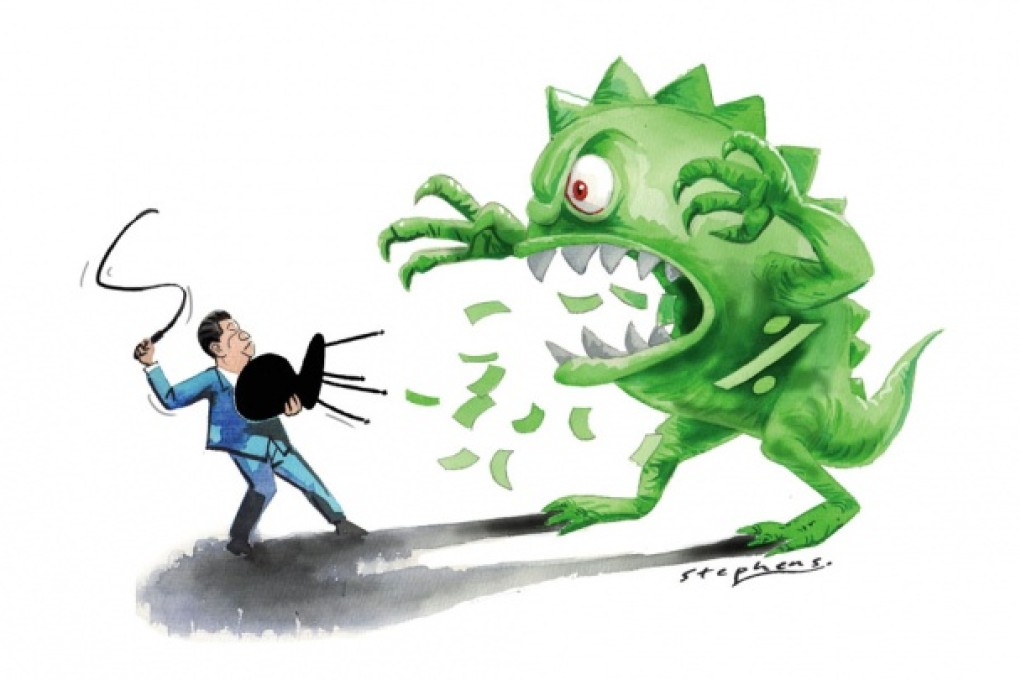The real problem behind China's shadow banking
Joe Zhang says China's massive shadow banking sector is only a reflection of the real issue - the persistent, unbridled growth of credit as a result of negative interest rates and financial repression

In China today, the term "shadow banking" has a negative meaning. Over the past year, the China Banking Regulatory Commission has issued numerous policy directives to try to contain its explosive growth. Xiao Gang , the head of the Chinese securities watchdog, called shadow banking "a Ponzi scheme" in an opinion piece he penned last year while still serving as chairman of the Bank of China.
But why is shadow banking still all the rage, despite the hostile regulatory environment?
This will risk an economic recession, but it may be what is needed to avoid the next global financial crisis
In the past two to three decades, China has implemented an extremely inflationary monetary policy. Since 1986, for example, its money supply has grown at a compound annual growth rate of 21.1 per cent, and its bank loan balance by 18.2 per cent. Of course, Chinese citizens have not become richer as fast, and much of the growth is merely a monetary illusion.
Why did credit grow so fast for so long? Apart from a robust economy, the reason has been the regulated and negative real interest rate. Due to financial repression, demand for loans has been artificially boosted, as bad investments become feasible on subsidised credit. Indeed, it has been a vicious cycle.
First, the fast growth of loans worsens inflation, which weakens the purchasing power of money. To facilitate the same amount of business, corporate China needs more credit. And as more credit is released into the economy, the purchasing power of money shrinks further. I call this an iterative escalation of credit and inflation. There is a constant shortage of credit no matter how fast credit grows. The reason? Bank loans are impossible to refuse as they are heavily subsidised. Homebuyers and speculators know this all too well.
The Chinese government frequently talks about prudent monetary policy but does not really have the political will to tighten credit for fear of job losses and a recession. Even in April, the broad money supply (M2) has grown at 16.1 per cent compared to the same time last year. That is a very high rate on a high base. China is still inflating rapidly despite repeated declarations of credit controls by government officials.
The results of financial repression are visible everywhere, from industrial overcapacity to excess real estate construction, and the unstoppable growth of shadow banking.